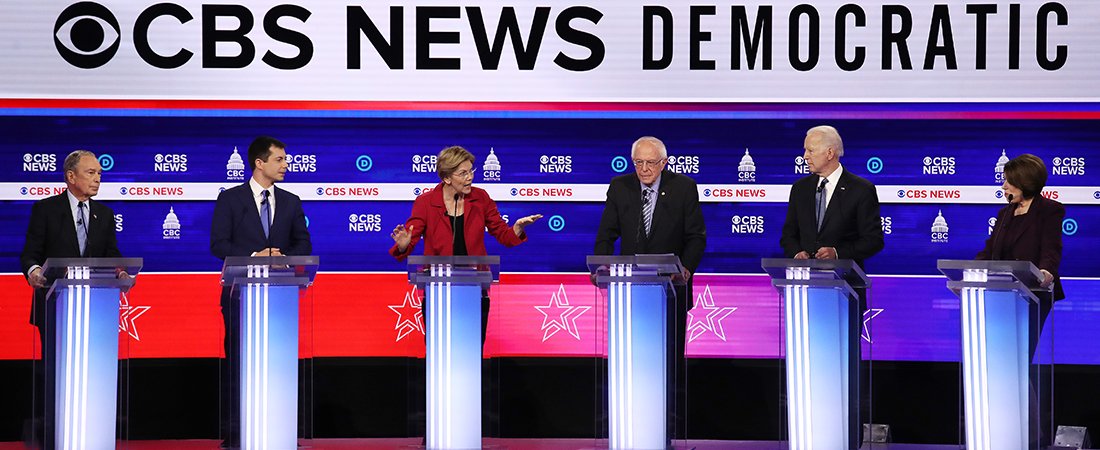To become the Democratic nominee for president of the United States, candidates compete for delegates. Each state awards delegates to candidates in their state primary on a proportional basis. Candidates adopt different strategies to secure delegates to win the nomination. Portland breaks down the strategies each candidate is employing to secure the Democratic nomination.
The popular vote strategy
For Senator Bernie Sanders the primary fight is about more than winning the nominations; it’s about defeating the establishment and creating a new political movement in the US. Many of his supporters believe the delegate system was rigged against them in 2016 and successfully petitioned for some changes to the system. So far, he’s won the most votes in the early states, but the quirks of the Democratic primary system may mean that this isn’t enough.
The delegate strategy
At the end of the day, delegates win you the nomination, so that’s what former South Bend Mayor Pete Buttigieg’s campaign is focused on. He came second in votes in both Iowa and New Hampshire and currently sits in second place in delegates. Buttigieg has performed well in rural areas which has helped him to accumulate delegates by winning individual districts instead of racking up votes in cities. If he continues to deploy his resources strategically, he will continue to accumulate delegates and stay in contention for the nomination.
The minority voter strategy
Former Vice President Joe Biden and venture capitalist Tom Steyer have poured their resources into South Carolina, viewing it as a harbinger of their popularity among African American voters. This voting bloc has decided the Democratic nominee in each election cycle since 1988, not just because of the number of voters but because of their impact on the delegate count.
Candidates win delegates for their performance in Congressional districts, and districts with a higher share of black residents tend to have an above average number of delegates. Winning a majority of support from black voters can therefore give a candidate a structural advantage in the nominating fight. The South Carolina primary on February 29 will determine if this strategy bears any fruit.
The Bloomberg strategy
Former New York City Mayor Mike Bloomberg is deploying his vast wealth to blitz the airwaves with advertising. His rise in the polls show that he is reaching voters. His financial strength enables him to compete in all 50 states at once while other campaigns must think strategically about how they deploy their resources.
Bloomberg has focused his financial firepower on the states with the largest
delegate counts that vote on Super Tuesday and later in March. A strong
performance on Super Tuesday that sees him win several big states could give him a delegate lead that will be difficult for the other candidates to overturn.
Conclusion
By the end of March, 64 per cent of delegates will have been awarded – giving us a clear indication of who the nominee will be. The proportional system makes it very difficult for candidates to come back from a delegate deficit, which is why so much hinges on Super Tuesday. If you can get a lead early, the nomination is yours to lose. Each candidate has a different strategy, but all are looking for a knockout punch.
There is the chance that the race to the nomination will continue into the summer. Democrats worry that a long nominating fight will lead to a stronger Trump in November.

